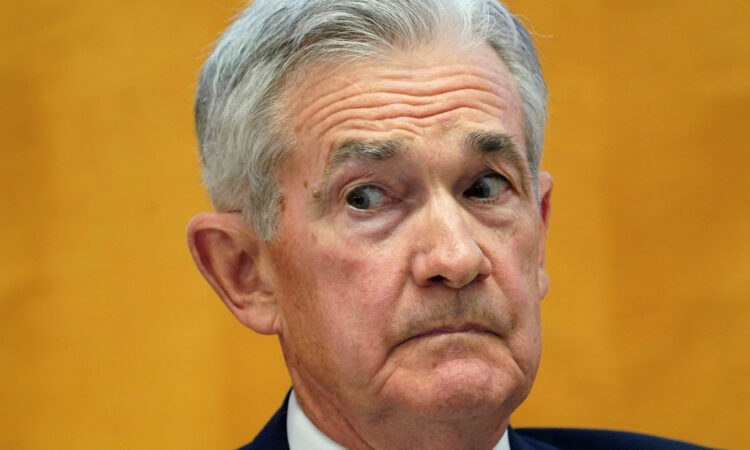
he United States is on an “unsustainable” path with regard to its national debt and it is time to address the issue, Federal Reserve chief Jerome Powell said in an interview aired Sunday.
The US national debt currently stands at more than $34 trillion, according to the US Treasury.
“In the long run, the US is on an unsustainable fiscal path. The US federal government’s on an unsustainable fiscal path. And that just means that the debt is growing faster than the economy,” Powell told CBS’ “60 Minutes” news program.
“It’s probably time, or past time, to get back to an adult conversation among elected officials about getting the federal government back on a sustainable fiscal path,” he said in the interview, which was recorded on Thursday.
“I do think it’s pretty widely understood that it’s time for us to get back to putting a priority on fiscal sustainability. And sooner’s better than later.”
Last week, the Fed voted to leave interest rates unchanged for the fourth straight meeting, and while it said at the time that “risks to achieving its employment and inflation goals are moving into better balance,” it also hinted that rate cuts were not imminent.
In the CBS interview, Powell reiterated that stance, saying it was unlikely that a rate cut would come at the next meeting of the rate-setting Federal Open Market Committee (FOMC) in March.
“I think it’s not likely that this committee will reach that level of confidence in time for the March meeting, which is in seven weeks,” Powell said.
When asked about what conditions needed to be in place for an eventual cut, Powell replied: “It doesn’t need to be better than what we’ve seen, or even as good. It just needs to be good.”
He added: “The best we can do is to weigh the risk of moving too soon against the risk of moving too late and make that judgment in real time. So that time is coming, I would say, based on what we expect.”
The Fed’s benchmark interest rate is currently steady at its 23-year high, between 5.25 and 5.50 percent.
Powell said he believed inflation would continue to taper off in the first half of 2024, and the Fed would reassess its interest rate target in March.
“Nothing has happened in the meantime that would lead me to think that people would dramatically change their forecasts,” he told CBS.







